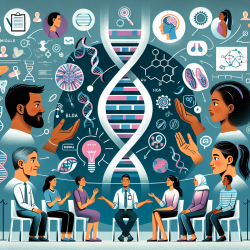Understanding Social Skills Deficits in Autism Spectrum Disorder
Autism Spectrum Disorder (ASD) is characterized by two core symptoms: deficits in social communication and the presence of repetitive behaviors or restricted interests. Despite the significant impact these symptoms have on individuals with ASD, there are currently no FDA-approved drugs specifically targeting these core symptoms. However, recent research has provided insights into potential therapeutic agents that could improve social skills in individuals with ASD.
Potential Biological Origins of Social Skills Deficits
The deficits in social skills observed in individuals with ASD are believed to have biological underpinnings. Abnormalities in brain circuits associated with social function, such as the medial prefrontal cortex and amygdala, have been identified. Additionally, neurotransmitter imbalances, particularly involving oxytocin and vasopressin, play a crucial role in social cognition and behavior.
Promising Therapeutic Agents
Several therapeutic agents are currently being investigated for their potential to improve social deficits in ASD:
- Oxytocin: Known for its role in social bonding, oxytocin has shown promise in enhancing social cognition and reducing repetitive behaviors in individuals with ASD.
- Propranolol: A beta-blocker that may improve social interaction and communication by modulating the autonomic nervous system.
- Bumetanide: A diuretic that may help balance neurotransmitter levels, potentially improving social behaviors.
- Microbiota Transfer Therapy: Altering the gut microbiome has shown potential in improving social function and reducing gastrointestinal symptoms in ASD.
Challenges in Developing Treatments
Developing effective treatments for social skills deficits in ASD is challenging due to the heterogeneity of the disorder. High placebo response rates and the complexity of assessing social skills in clinical trials further complicate the process. However, ongoing research continues to explore innovative approaches to overcome these challenges.
Implementing Research Findings in Practice
Practitioners can enhance their skills by staying informed about the latest research on therapeutic agents for ASD. By understanding the biological origins of social skills deficits and the potential of emerging treatments, practitioners can better tailor their interventions to meet the unique needs of individuals with ASD.
For practitioners interested in further research, exploring the detailed findings of the study titled Social Skills Deficits in Autism Spectrum Disorder: Potential Biological Origins and Progress in Developing Therapeutic Agents is highly recommended.










